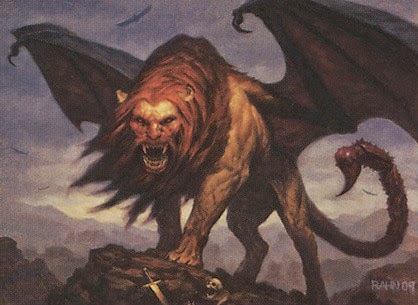Tuesday
The respected Washington Post columnist E. J. Dionne yesterday nominated William Butler Yeats’s “The Second Coming” as “the most cited poem in political commentary.” That’s because it captures some of our most pressing political dilemmas in memorable ways.
Although the poem was written in 1919 and initially reflected fears about what would emerge from the carnage of World War I—would the humanitarian values prized by the 19th century disappear forever? would the Bolshevik revolution spread to the rest of Europe? –it can be applied to any period where extremism threatens moderation.
That being said, I’m coming to think that Yeats sets up a false dichotomy. I’ll let Dionne show the poem’s relevance and then point out a significant weakness.
The first eight lines, which describe the present, are usually the ones that are quoted since the next 22, reflecting Yeats’s mysticism, baffle pretty much everyone. What exactly is this rough beast slouching towards Bethlehem? But here’s how it begins:
Turning and turning in the widening gyre
The falcon cannot hear the falconer;
Things fall apart; the centre cannot hold;
Mere anarchy is loosed upon the world,
The blood-dimmed tide is loosed, and everywhere
The ceremony of innocence is drowned;
The best lack all conviction, while the worst
Are full of passionate intensity.
Dionne first applies the passage to the anger being channeled by Donald Trump and how it is overwhelming more moderate Republican voices. See it as
Worst > Best
or
Passionate intensity – 1
Lack of conviction – 0
The columnist then applies the imagery to Western democracies in general.
But Trump is a symptom of a much wider problem in Western democracies. In country after country, traditional, broadly based parties and their politicians face scorn. More voters than usual seem tired of carefully focus-grouped public statements, deftly cultivated public personas and cautiously crafted political platforms that are designed to move just the right number of voters in precisely the right places to cast a half-hearted vote for a person or a party.
Slate columnist Reihan Salam, Dionne notes, has pointed out that extreme movements are breaking out all over, some from the right, some from the left:
Reihan Salam, a conservative writer, is also struck by the similarities between Trumpism and a variety of rebellious movements to the left and right of the middle-ground parties in Europe. He noted recently in Slate that Italy, Britain, Denmark, Sweden, France, Spain and Greece have all seen the rise of new parties that “manage to blend populism and nationalism into a potent anti-establishment brew.”
Not even mentioned is how extreme Islamic voices are drowning out moderate Muslims around the world.
Dionne notes that the threat to a carefully staked out middle ground is a particular problem for the left, which (here Dionne quotes Tony Judt) favors “incremental improvements upon unsatisfactory circumstances.”
As Dionne explains,
When voters are this disheartened, incremental improvements aren’t good enough. Especially when discontent congeals around issues of culture and nationalism rather than material need, the promises of social democrats and labor liberals can seem too humdrum and insufficiently inspiring.
It’s hard to be passionate in those conditions:
Paradoxically, the moderate left depends on a successful and reasonably responsible capitalist system to make its social and economic programs work. When capitalists behave negligently or when inequalities get too severe, as is happening now, social democrats find themselves simultaneously outflanked on their left by more vociferous critics of the system and by nationalist or xenophobic parties on the right who offer a different kind of salvation rooted in identity.
The moderate right is hurt as well. After all, real conservatism also advocates careful moderation, not burn-the-place-down anger. Dionne notes that church attendance, which should be a moderating force, is down.
As I read Dionne’s column, however, I wonder whether there isn’t something wrong with Yeats’s either/or. After all, isn’t it possible to hold a position without being fanatical about it? Is the lack of passionate intensity necessarily a sign that there’s no conviction? What about those people who believe in compromise, in dialogue, and in nuance?
I use a personal example where “even the best” has been used on me. I’ve told the story of how Lucille Clifton referred to me in her poem “note to self.” I was trying to negotiate between angry white voices and angry black voices at the college where she and I were teaching, and she felt that I failed to sufficiently acknowledge the legitimacy of the black voices.
She may well have been right. But that doesn’t mean that I lacked all conviction. I deeply believed that people should respect each other, that racism is wrong, and that dialogue would provide a way forward. I was not one of the loud voices in the room but that didn’t mean that I was without strong beliefs.
Obama has sometimes been described as lacking fire in the belly, yet I see him making the world a better place. I think Hillary would make it better as well, and Jeb Bush wouldn’t be a disaster. They may not stir people up, may not inspire them, but they might hold off an apocalyptic second coming. That’s more than I can say for Donald Trump and the other extremists who are currently leading in the polls.
So how about this: the best are moderate in their demands and are willing to compromise, the less-than-best lack all conviction, and the worst are full of passionate intensity.
It’s not as poetic but it may be closer to the truth.



One Trackback
[…] named “The Second Coming” as the poem most cited by political columnists (I write about that here). Abdul-Jabbar is therefore not breaking new ground. He applies the poem well, […]